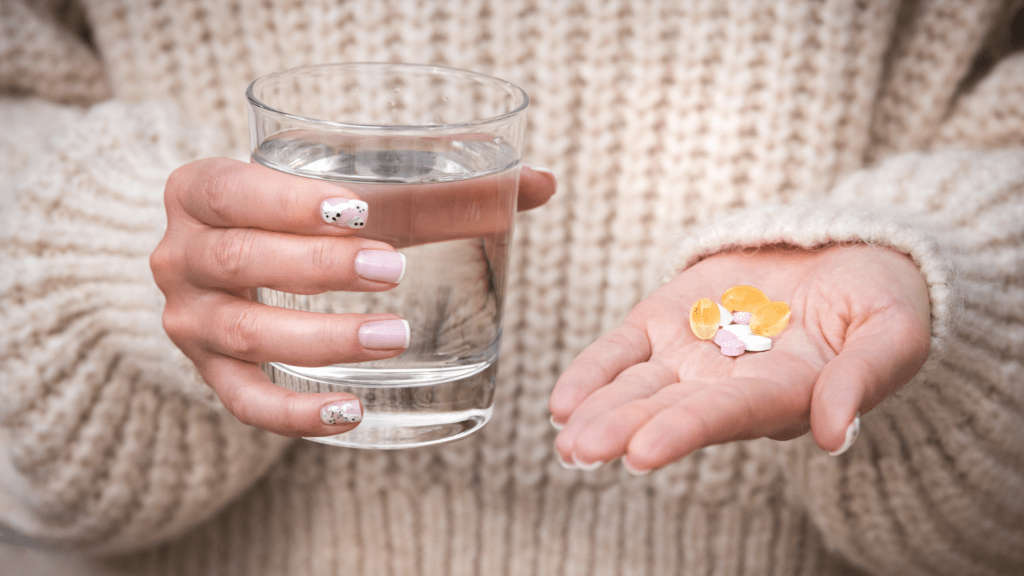Nutrition and Diet for Fertility

Whether you are just starting out on your fertility journey, or you’ve been trying to get pregnant for a while, The IVF Network is here to answer your questions on nutrition. If you and your partner are looking to improve your chances of conception your diet might seem like an easy place to start. So, what is a fertility diet and can the foods you eat really affect your fertility?
What is a fertility diet?
A diet refers to the food you eat and the vitamins, minerals and other nutrients you get from it. When you are trying to get pregnant, you might need to be more aware of the food you are eating. A fertility diet refers to a diet which is recommended to couples who want to conceive. At its core, it’s a balanced diet with a variety of healthy foods.
It’s important to remember that what you eat doesn’t guarantee conception or a healthy baby. However, having a healthy lifestyle and diet can improve your fertility chance. As can eliminating specific foods from your diet.
Foods to add to your fertility diet
There have been studies showing that including certain foods and supplements in your diet has a positive effect on your fertility. It is recommended you eat a balanced, healthy diet, such as a Mediterranean diet. This diet is rich in fruits, vegetables, whole grains, seafood, nuts, legumes and olive oil.
Fruit, vegetables and whole grains contain complex carbohydrates, which keep blood sugar levels stable, and this, in turn, can improve fertility. Eating Greek-style yoghurt and eggs is great for the health and brain function of the unborn baby. Higher intakes of plant protein, such as lentils, nuts, and seeds, are also beneficial. Other foods women trying to conceive can add to their diet are pomegranate, walnuts, sunflower seeds, liver, asparagus, salmon, sardines, avocados, olives, leafy green vegetables, sweet potatoes and watermelons.
When altering your diet, even if it introduces more healthy foods, you should eat them in moderation. Eating large quantities of some of the foods listed above can be harmful rather than beneficial.
Pregnancy supplements
In addition to a healthy diet, many doctors recommend that females take a prenatal vitamin daily. If taking this vitamin, it is advised to start a month before trying to get pregnant. It is not essential to take a prenatal vitamin, but there are a few specific supplements to include in your fertility diet. Many women experience vitamin D and iodine deficiencies, and these are present in the prenatal vitamin. They are important because they are used to control blood concentrations in the body and therefore have a vital link to pregnancy. The prenatal supplement also includes folic acid, vitamin B12 and omega 3, which are advice for women trying to conceive.

Folic acid
Studies show that women are more likely to conceive while taking folic acid supplements. Folate, the dietary equivalent of folic acid, can be found naturally in brussels sprouts, asparagus, fortified cereals, legumes and dark-green leafy vegetables. Taking folic acid prevents neural tube defects, such as spina bifida. These defects develop early in pregnancy, so if you are trying to get pregnant, taking 400 micrograms of folic acid each day is advised. However, you should follow your GP’s guidance on this.
Vitamin B12
This vitaman is suggested to be taken as a supplement because it helps to support the development of the spine, nervous system and brain of a growing baby. Vitamin B12 can be found naturally in foods such as eggs, yoghurt, low-mercury fish and lean meats.
Omega-3
Omega-3 is great for developing the baby’s nervous system and cuts the risk of premature birth. It is found in oily fish and seafood, nuts and seeds like chia and flax, and plant-based oils.
The right vitamins in the right quantity can make a difference in fertility and have a positive impact on your pregnancy and your unborn child. However, speak to a specialist before making changes to your diet.
IVF diet
The foods mentioned above are examples of the types of food you will want to add to your diet when going through IVF treatment. A balanced diet should also be followed before, during and after IVF treatment. When going through IVF, speak to a medical specialist or nutrition expert before making changes to your diet. At The IVF Network, we work closely with nutritionists who specialise in pregnancy and IVF, such as Melanie Brown. Melanie’s qualifications include an MSc in Nutritional Medicine and a BSc (Hons) in Health Sciences: Nutritional Therapy. Alongside this, she has 20 years of experience working with doctors, gynaecologists, urologists, midwives and IVF specialists.
To get free advice and information from experts, sign up for The IVF Network.
Food for a male fertility diet
As with female fertility, having a healthy diet and an active lifestyle will benefit male fertility. Male fertility is strongly linked to sperm health, and eating a balanced diet with the right nutrition can positively influence fertility in males. Having whole foods and foods rich in antioxidants, including green leafy vegetables, fruits, beans, fortified grains, cod, beef, turkey, chicken, walnuts, eggs and sunflower seeds, is recommended. As always, moderation is important, and it’s wise to have a varied diet, as too many certain vitamins, minerals, and antioxidants can be harmful. Males are also advised to eat unsaturated fatty acids like those found in avocados, seeds and plant oils. Getting at least two portions of protein a day from sources like beans, poultry and nuts is also advised.
Vitamins and minerals are important factors in male fertility. Vegetables, nuts, seeds, and asparagus are natural sources, but it’s wise to seek advice from your doctor or fertiity specialist to ensure that you are getting the right type and quantity

Healthy sperm
Healthy sperm is key for conception and for your child’s development. The good news is that new sperm is constantly being created. In just three months, positive diet and lifestyle changes can make a huge difference to your fertility and the likelihood of conception. Food rich in antioxidants can improve sperm quality and boost male fertility.
Certain vitamins and minerals have specific benefits for fertility, such as selenium. It is an antioxidant, essential for sperm formation and testosterone production and good for sperm motility. The intake of selenium needs to be regulated, however, as high doses in the diet can be dangerous. Omega-3 helps maximise blood flow to the testicles, and Omega-6 maintains the reproductive system and is also great for sperm health.
Saturated fats and trans fats should be avoided for good sperm health. Instead, opt for polyunsaturated fats, found in vegetable oils, oily fish, nuts and seeds. Eating Greek-style yoghurt has been shown to boost semen quality.
Does a fertility diet really help?
Diet helps fertility because your nutrition and health impact the quality of your eggs or your sperm. What’s even more crucial is that diet is within your control. There is a lot of marketing and product hype around fertility foods, and for those experiencing infertility, it might be tempting to search for one miracle food or key ingredient that will get you pregnant. Unfortunately, this is not the case. Your overall health, genetics, age and medical conditions have an impact on your fertility. So, eating well will not prevent infertility. However, it will improve your chances of fertility.
Females are born with all of the eggs; however, while you can’t improve their quality or quantity, you can protect them from further harm. Having a healthy body will also help you to cope with the physical and emotional demands of pregnancy and being a new parent. For females suffering from PCOS, endometriosis or fibroids, dietary and lifestyle changes can help to reduce the symptoms and increase their chances of conceiving. Certain vitamins and minerals have specific benefits for fertility and pregnancy. For example, selenium can promote healthy follicles in the ovaries and prevent miscarriage and congenital disabilities.
Vegetarian and Vegan
Vegetarians and vegans may need to be conscious of including foods with more iron in their diets. Iron can be found in foods like beans, lentils, spinach, fortified cereals and whole grains. Vitamin C enhances the body’s ability to absorb iron, so it should be included in the diet, too. Vitamin C is found naturally in citrus fruits, berries and bell peppers.
Foods to avoid in your fertility diet
Your fertility diet will also take into account foods that you want to avoid and others you should limit. Drinking alcohol, even in small amounts, can have a detrimental effect on egg quality, but adopting a healthy diet can help to preserve egg quality and improve fertility.
People know that drinking coffee is not advised for people looking to get pregnant, but this extends to all caffeine, including coffee, tea, soft drinks, energy drinks and even chocolate. Caffeine intakes should not exceed 500mg per day.
Trans fats and highly processed food have been linked to poor fertility results in both males and females. As have foods with sweeteners and overly sugary foods. Reducing the amount of animal proteins, especially those found in red meat, is recommended, and dairy foods, including cheese, should also be limited, as they have been linked to poor sperm motility.
While many females take supplements while pregnant, it is important to do this at discretion because excess vitamins can also be damaging. For example, excessive vitamin A can harm growing foetuses.
It is important to consult an expert on your health before making big changes to your diet and lifestyle. Additionally, each individual has specific health and medical considerations to take into account.
Do you want extra advice on health and nutrition throughout your fertility journey?
Join The IVF Network for free to access information, podcasts and live broadcasts with fertility experts.